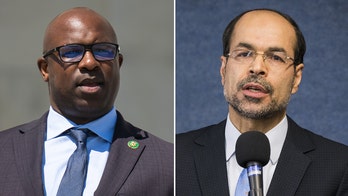With the presidential debate between Donald Trump and Kamala Harris scheduled for September 10th, both candidates are engaging in last-minute negotiations, raising questions about the event's viability and the state of the race.
The debate over debates provides valuable insights into the state of the presidential race, with both candidates attempting to gain an advantage through negotiating terms. Donald Trump's threats to withdraw from the scheduled debate against Kamala Harris on ABC News stem from his dissatisfaction with the network's coverage, particularly the recent interview with Senator Tom Cotton. Harris, on the other hand, is seeking to keep the microphones live during the debate, a departure from the previous CNN debate where Biden insisted on muted microphones.
The debate dynamics reflect the perceived momentum shifts in the race. Harris, buoyed by her strong performance at the Democratic convention, appears eager for the debate, while Trump, facing criticism for his handling of the Afghan withdrawal, may be seeking to avoid a potentially damaging encounter. The inclusion of Robert F. Kennedy Jr. in Trump's team further complicates the race's dynamics, making it difficult to predict the outcome.

The Debate Imbroglio: Trump's Threats, Harris' Demands, and the State of the Presidential Race
Trump's criticism of ABC News and his suggestion that the network is biased against him align with his long-standing attacks on the media. The former president's attempt to control the narrative and discredit unfavorable coverage highlights his ongoing efforts to undermine trust in mainstream news outlets.
Harris' insistence on keeping the microphones live during the debate is strategic, as it would allow her to highlight any potential interruptions or disrespectful behavior from Trump, particularly in the context of her being a woman of color. This could serve to reinforce negative perceptions of Trump among key voter groups.

The Debate Imbroglio: Trump's Threats, Harris' Demands, and the State of the Presidential Race
The dispute over the debate's format highlights the candidates' different strategies and expectations. Harris' adherence to traditional debate norms suggests a desire for a more controlled and dignified encounter, while Trump's willingness to break from convention aligns with his unconventional approach to politics.
Trump's decision to hold two lengthy news conferences, which were largely ignored by MSNBC, underscores the media's persistent skepticism towards his credibility. The network's reluctance to air RFK Jr.'s press conference live, despite his endorsement of Trump, further raises questions about the media's perceived biases.

The Debate Imbroglio: Trump's Threats, Harris' Demands, and the State of the Presidential Race
RFK Jr.'s dropout from the race and his endorsement of Trump could potentially benefit the former president, particularly among undecided voters. However, his previous efforts to negotiate healthcare positions with both Kamala and Trump raise questions about the sincerity of his support.
As the presidential race enters a crucial phase, Harris faces the challenge of defending her record and countering Republican attacks. Trump, on the other hand, will likely continue to rely on his base and attempt to undermine Harris' credibility. The September 10th debate will serve as a major test for both candidates and could potentially shape the trajectory of the race.

The Debate Imbroglio: Trump's Threats, Harris' Demands, and the State of the Presidential Race










